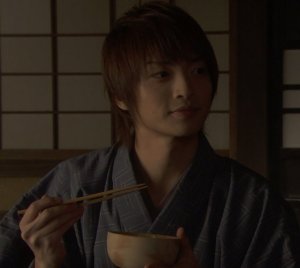

Both shows follow the plot of visits through various public baths to immerse you in the environment. "Hiru no Saint Zake" is more of a comedy than "Sa-Do" with bizarre jokes and a jovial main character.
"Sa-Do" draws you in more to the atmosphere of the public baths and sauna with its soundtrack and advanced enthusiast observations with tranquility. "Hiru no Saint Zake" draws you into the environment of Japanese streets and Japanese restaurants with carefreeness.
Both dramas are great displays of the happiness and community of spending time and space with fellow nude men. Which I wholly recommend to anyone interested!
"Sa-Do" draws you in more to the atmosphere of the public baths and sauna with its soundtrack and advanced enthusiast observations with tranquility. "Hiru no Saint Zake" draws you into the environment of Japanese streets and Japanese restaurants with carefreeness.
Both dramas are great displays of the happiness and community of spending time and space with fellow nude men. Which I wholly recommend to anyone interested!


These dramas are near opposites which share the same catalysis of the government creating a program to increase Japanese birth rates.
Otona Koukou doesn't take this premise seriously at all and instead uses it as a premise for comedy amongst a fun cast of characters. Kekkon Aite takes this concept as seriously as it can to make a political statement about the social consequences this program would have on various Japanese minorities.
Both share the similar traits of having well-written and respected queer side characters who are given lots of plot relevance. Both also ultimately end up sharing the critique of the failures of this program in creating a long-lasting healthy relationship.
Otona Koukou doesn't take this premise seriously at all and instead uses it as a premise for comedy amongst a fun cast of characters. Kekkon Aite takes this concept as seriously as it can to make a political statement about the social consequences this program would have on various Japanese minorities.
Both share the similar traits of having well-written and respected queer side characters who are given lots of plot relevance. Both also ultimately end up sharing the critique of the failures of this program in creating a long-lasting healthy relationship.


Both series follow a monster protagonist who struggles to balance the importance of human and monster lives.
Both seasons feature similar plot twists that further develop the characters from the previous season.
Both seasons feature similar plot twists that further develop the characters from the previous season.








